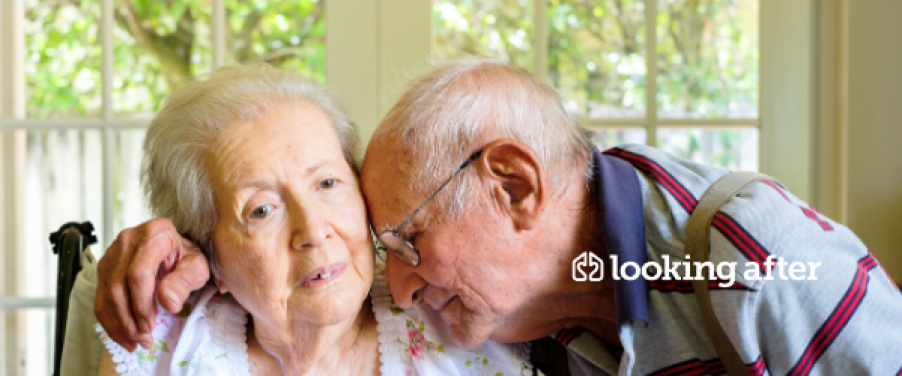Dementia and sundowning
Sundowning dementia is usually applied to behaviours that happen in the late afternoon, early evening time and can be quite common in dementia patients. The dementia patient’s sense of confusion tends to grow significantly at this time and they can get themselves into a state of agitation, convinced that they are not in the right place. There is an increased risk of wandering, as they try to get to the place that they think they should be in. They can also act out aggressively, which can be distressing for you as a carer.
How does it happen
Sundowning behaviours in a dementia patient can be brought about by changes in routine, interruption to sleeping patterns and a change in medication, or even that the dementia patient has been receiving too much, or too little light. The symptoms may last as often as several months, so a process of elimination to discover what is triggering the anxiety may be required, as well as introducing a routine which includes calming methods and activities. It is thought that a lack or reduction in melatonin in the body may exacerbate sundowning behaviours which is why a good sleep pattern is very important for dementia patients.
Behaviours and support
Sundowning can lead to dementia patients being particularly agitated or anxious. A person with dementia because they find it harder to distract themselves or move away from things that are upsetting them. This is where you as the carer need to employ some calming methods, to help distract the dementia patient and we list out below a few activities that you may help. Try and make sure that the area in which they are in is not too noisy as this can be too distracting for the dementia patient. Equally, the amount of light available in the area should be sufficient for them to be able to see objects clearly and understand what they are, although if it is too bright, this will also fuel their agitation.
Exercise
Try and encourage a daily exercise routine for the dementia patient. Exercise has been shown to have many benefits for patients suffering with dementia. You should include yoga and other mindfulness exercises as well as cardiovascular type activities. Regular brisk walking can delay the symptoms of dementia. Studies have shown it to boost the area of the brain linked to memory and planning.
Music therapy
Music therapy has been found to be increasingly beneficial to patients suffering with dementia and can even be used as a way of communication, if that person no longer uses words to communicate. Choose a playlist that the patient enjoys and try using this as one of the methods to help calm the patient. Our article about music and dementia patients explains music therapy options here
Light
Try and encourage the dementia patient to get access to as much natural daylight as possible. This will help with their circadian rhythm, which is essentially the natural way that our bodies react to light and our bodies own understanding of when it is time to sleep. We cover more on light therapies in our knowledge base
Twiddle muffs
Try calming the patient with something that they can use to keep their hands busy and minds distracted. These muffs have been known to reduce anxiety in patients and may even stave off a sundowning episode. More information on keeping hands busy can be found here>
Aromatherapy
Both lavender and lemon balm are known to have calming effects, in particular with dementia patients. They are also known to help boost cognitive function which is the part of the brain that we use to carry out tasks. Using these two oils can help to reduce anxious episodes.
Is it dementia sundowning?
It is also worth remembering that it may be that the person is trying to communicate something with you, so consider if there may be another reason for their increased anxiety and that it may not be an episode of sundowning.
Advice and articles




